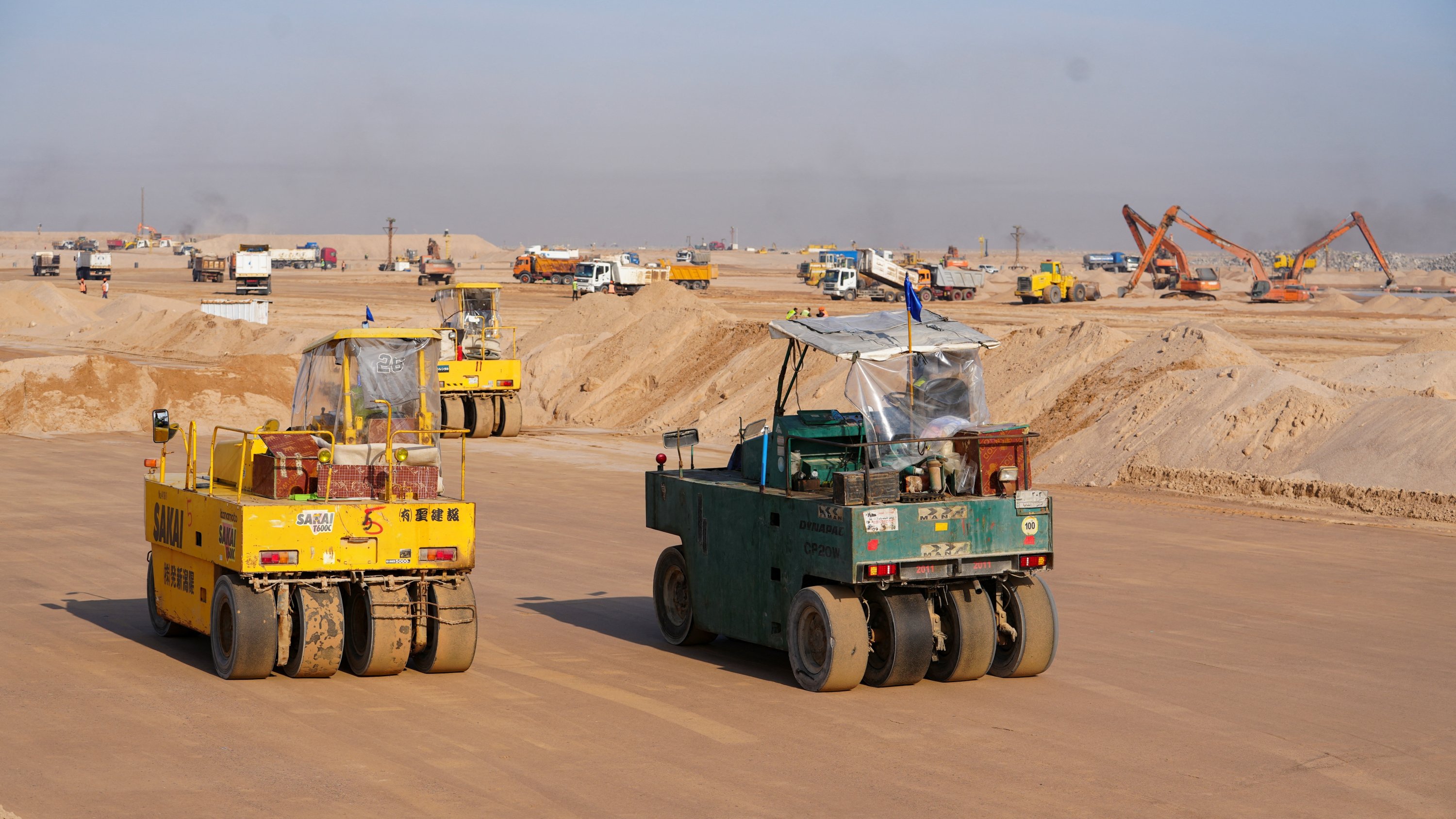© Turkuvaz Haberleşme ve Yayıncılık 2025
Transport and Infrastructure Minister Abdulkadir Uraloğlu on Friday said preparations are nearing completion for a megaproject that will serve as a new freight link between Asia and Europe via upgraded rail and road infrastructure through Iraq and Türkiye.
“We're advancing with the project. We're currently working on financing and operational details and aim to begin construction next year," Uraloğlu told the "Sustainable Transport in the Century of Türkiye Summit."
The event was organized by Türkiye's leading media group and Daily Sabah's parent company, Turkuvaz Media.
Dubbed the Development Road, the project is expected to cost some $17 billion and is designed to facilitate the transport of goods from the Gulf to Europe via the Grand Faw Port in Basra in southern Iraq.
The port would be linked to Türkiye and subsequently to Europe through an extensive network of railways and highways.
Earlier this month, Iraqi Prime Minister Mohammed Shia Al Sudani inaugurated five docks at Grand Faw Port. The first phase of work on the port, intended to supplement the existing docks in the port city of al-Faw, is expected to be completed next year.
Türkiye, Iraq, Qatar and the United Arab Emirates (UAE) are sides in the project for which they have signed a memorandum of understanding for joint cooperation.
The initiative, which was unveiled last year, would turn Iraq into a transit hub by shortening travel time between Asia and Europe to rival the Suez Canal.

Approximately 85% of international transportation is conducted via sea routes, said Uraloğlu.
"Currently, it takes a ship departing from China about 35 days to travel through the Suez Canal. However, if we could complete the Development Road today, this duration would be reduced to 25 days," he noted.
The planned project will involve the construction of about 1,200 kilometers (about 745 miles) of railways and highways.
"The Development Road will reach the Ovaköy Border Gate and from there extend to Kapıkule. There are plans for three exits to the sea, and the corridor will also provide access to Russia and the Caucasus," said Uraloğlu.
Discussing alternative routes, Uraloğlu pointed to the planned Zangezur Corridor between Türkiye and Azerbaijan as a strategic link.
"The corridor will enable direct connections to the Turkic world," he noted, highlighting its potential to complement existing routes like the Baku-Tbilisi-Kars railway.
Türkiye has significantly expanded its road network, increasing the length of divided highways from 6,101 kilometers in 2002 to 29,500 kilometers today.
"This has connected 77 provinces compared to just six in 2002," Uraloğlu said.
The minister also announced the development of a Turkish model for smart transportation, incorporating advanced sensor systems and intelligent signage.
Initial trials of the system will be conducted on a 30-kilometer stretch between Hasdal and Istanbul Airport, Uraloğlu noted.
He said fiber optic infrastructure is crucial for this transformation.
"We plan to lay 15,000 kilometers of fiber optic cables and start manufacturing next year, with pilot applications launching in 2026," Uraloğlu stated.
